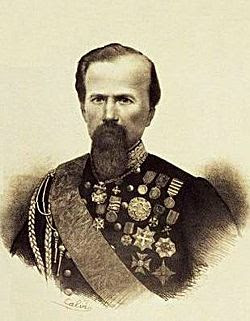
I was struck by an article of March 13, on La Repubblica.
A small but growing group of countries is competing in an unwritten race to be a "neutral country" in emissions of carbon dioxide. A race against the greenhouse effect that is ideally called "Carbon-neutral World Cup" and that, currently is headed by Costa Rica, Norway, New Zealand and Iceland.
Reaching the "neutrality" of carbon dioxide emissions means balancing emissions of greenhouse gases that are produced by burning fossil fuels, with something that is able to capture them, such as extensive forest.
These days Roberto Dobles, Costa Rican Minister of Environment and Energy, says that his country has been awarded the 'prize' having achieved the goal of being a "neutral country".
It does not matter whether Costa Rica is the first or not, this is not the news. In reading the article the many detractors of climate change came to mind: industrial lobbies, re-routed or ‘bought’ scientists, ignorant opinion-makers, irresponsible ministers and a lot of ordinary people, even educated, who do not consider this an issue worthy of attention.
I remember that I talked some ago with a middle school teacher, a good person, who said with conviction that man claims the power to change the climate on the planet while these are natural things to which we just have to adapt. This man should work in the small shop at the beginning of the climb of Salvator Rosa, in Naples, and then we could speak again.
I wonder: if only in Italy we put into action that beautiful law that provides a new tree for every new born, if we build better railways (not TAV but the regional ones!) rather than invest in highways to be given to Benetton, if the Park of Vesuvius magically transforms into a real park from the big tip that it is today (Bassolinooo!!!), if we were collecting more in recycling and less in incinerators (Bassolinooo!!!), more wind and less coal, if the middle classes would buy fewer SUV, if we turn off lights when we don't need, if the mentality of the people were less subdued to their immediate and exclusive benefit... Perhaps also Italy would be proud to compete with Costa Rica in the "Carbon-neutral World Cup" instead of despairing for the elimination of mercenary Inter.
Of such a country I would be proud too!
Bruno Picozzi (in translation)







 BIPPIblog in italiano
BIPPIblog in italiano BIPPIblog in napulitano
BIPPIblog in napulitano